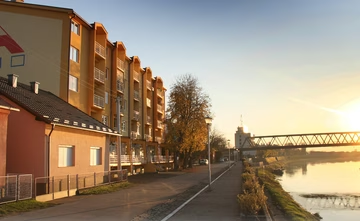
The doors of the Open Balkans initiative are open to Pristina, Sarajevo and Podgorica, it was said in Belgrade on Thursday after a meeting of the leaders of Serbia, Albania and North Macedonia, the countries that launched this initiative.
Oglas
Businessmen from Serbia, Albania and North Macedonia are 100% behind the Open Balkans initiative but demand that political agreements be translated into reality, it was said at the meeting of Serbian President Aleksandar Vucic, Albanian Prime Minister Edi Rama and North Macedonia's Deputy Prime Minister Nikola Dimitrov.
The initiative, formerly known as the Mini Schengen, was launched in late 2019 by the prime ministers of Serbia, Albania and North Macedonia with the aim of facilitating business and travel for citizens of the three countries and pursuing the European values of free movement of people, goods, capital and services.
The idea was initially also offered to other countries of the Western Balkans, but so far only Pristina is openly reserved about joining, insisting that Kosovo wants regional cooperation, but without discrimination.
We had a serious meeting with representatives of the business community of our three countries and all of them are 100% behind this initiative because they can see its benefits, but it is frustrating that we are not able to implement what we have agreed on, Vucic said at a joint press conference after the meeting with Rama and Dimitrov.
Vucic cited as an example the fact that trucks of manufacturers and exporters sometimes wait for 20 to 30 hours at the border with goods, despite all agreements, which is why an agreement in principle was reached today that services at border crossings would work Saturdays and Sundays. It was also agreed to form a council for the implementation of previous agreements within the initiative.
Albanian Prime Minister Edi Rama said that the markets of the countries in the region were small but that "when they are integrated, they will have a certain power to attract foreign investment". He confirmed that businessmen fully stood by this initiative but that they demanded that political agreements be implemented on the ground.
According to him, the Open Balkans initiative now encompassed three countries and was "intended for six countries" and did not belong only to the countries that had launched the initiative.
Nikola Dimitrov, who came in place of the Prime Minister of North Macedonia and co-founder of the initiative Zoran Zaev, who resigned after the election defeat, said that the Open Balkans initiative was important but pointed out that "regional integration is no substitute for European integration".
Kakvo je tvoje mišljenje o ovome?
Učestvuj u diskusiji ili pročitaj komentare
Oglas
Kakvo je tvoje mišljenje o ovome?
Učestvuj u diskusiji ili pročitaj komentare
Oglas





 Srbija
Srbija
 Hrvatska
Hrvatska
 Slovenija
Slovenija



























































